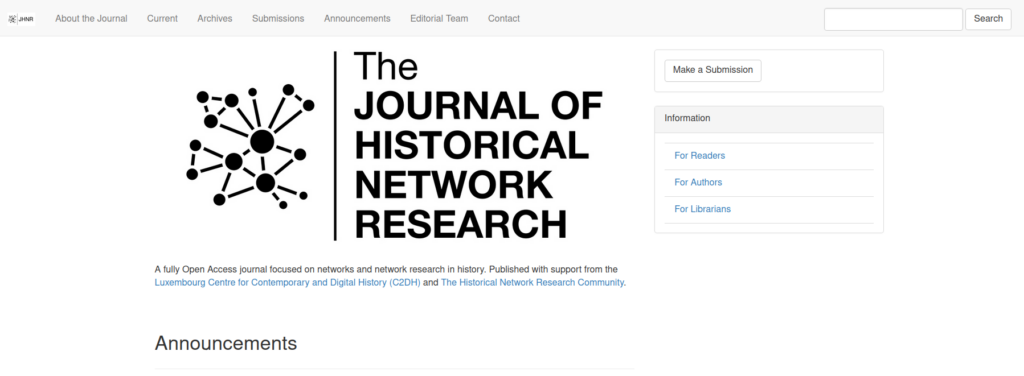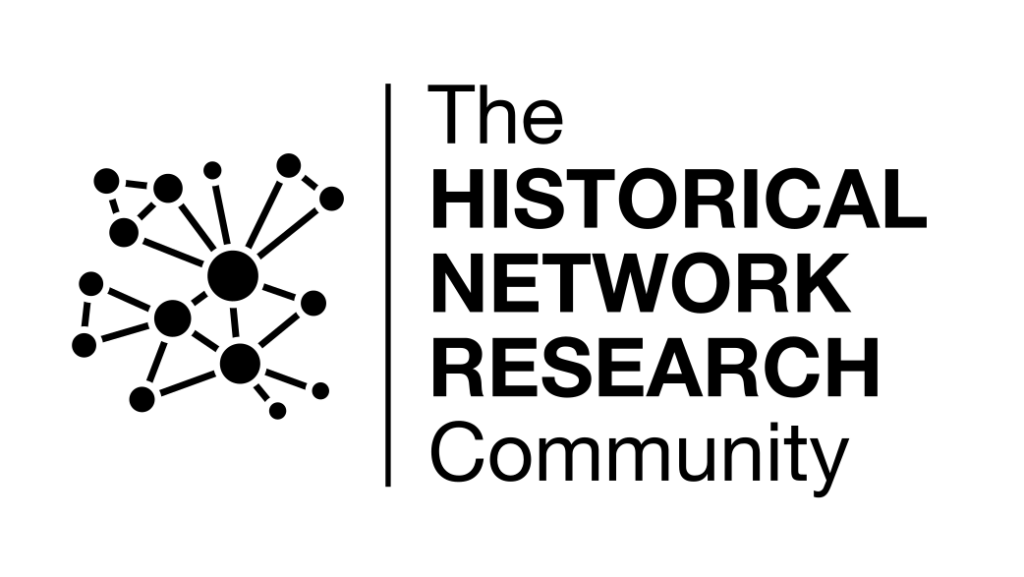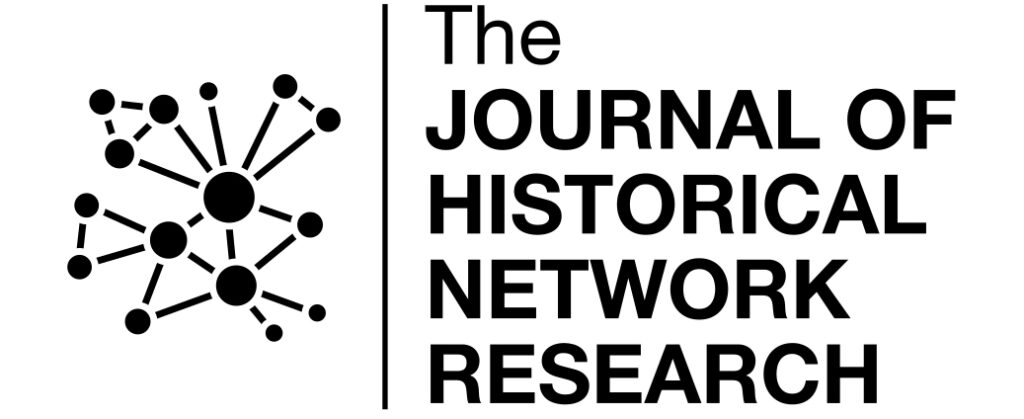Home
Digitisation and computational methods have brought fundamental change to the conduct of historical research and publication practices. My research explores the opportunities and challenges inherent in this transformation and is positioned on the intersection between historical thinking, novel computational methods and software design.
I am Assistant Professor in Digital History at the Luxembourg Centre for Contemporary and Digital History (C2DH) and hold a PhD in contemporary history. Over the last years I have enjoyed working in interdisciplinary research environments with social, computer and information scientists, engineers, designers and developers. A lot of my work has to do with networks, network analysis and its added value for historians. Below a brief overview of some ongoing projects.
impresso. Media Monitoring of the Past (2017-2020). Conceived of as a truly interdisciplinary research project, impresso brought together scholars in Digital Humanities, Computational Linguistics as well as a team of historians, designers and developers based at C2DH which I led. impresso had the goal to open up digitised collections of multilingual historical newspapers for data-driven content search, discovery and data criticism. To this end, the project created a corpus of Swiss and Luxembourgish newspapers and developed a technical architecture to facilitate data storage, enrichment and access. From my historical perspective, the main contribution the impresso app makes is an iterative, query-building workflow across multiple interlinked components which is driven by semantic enrichments generated during the project. This workflow encourages users to weave together insights gathered through advanced search, the exploration of ngram frequencies, named entity and topic distributions, text reuse and image similarity detection as well as article recommendations. The interface was developed around the principle of transparency and integrated rich information for the adequate interpretation of data and tool outputs.
We are currently putting the finishing touches on two impresso-related papers: One that gives a high-level overview of the app and its development and another which focuses on the interface and the novel workflows it supports.
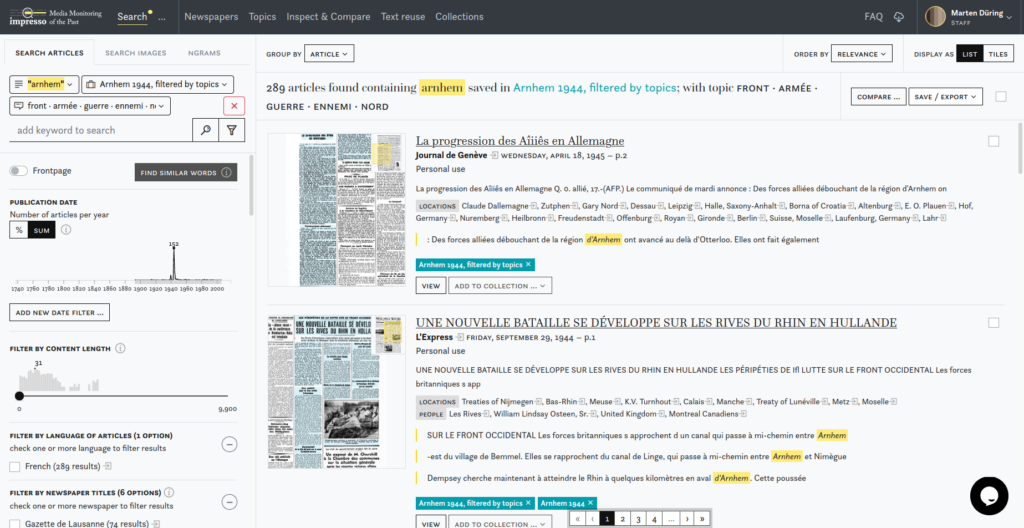
The Historical Network Research Community. Since 2009 I have played a leading role in the development of the Historical Network Research Community and co-founded and -organised a long-running workshop (*2009) and conference (*2013) series, an open access journal (*2017), an extensive research bibliography and community newsletter as main outputs alongside a number of publications. HNR activities originally served historians who sought to adapt social-scientific practices in network analysis to the needs of historians. Over the years, HNR became an attractive meeting ground also for researchers from neighboring disciplines who work with historical data. Today, the HNR activities attract historians, digital humanists as well as social, computer and information scientists who share an interest in network-related methods for the analysis of the past.
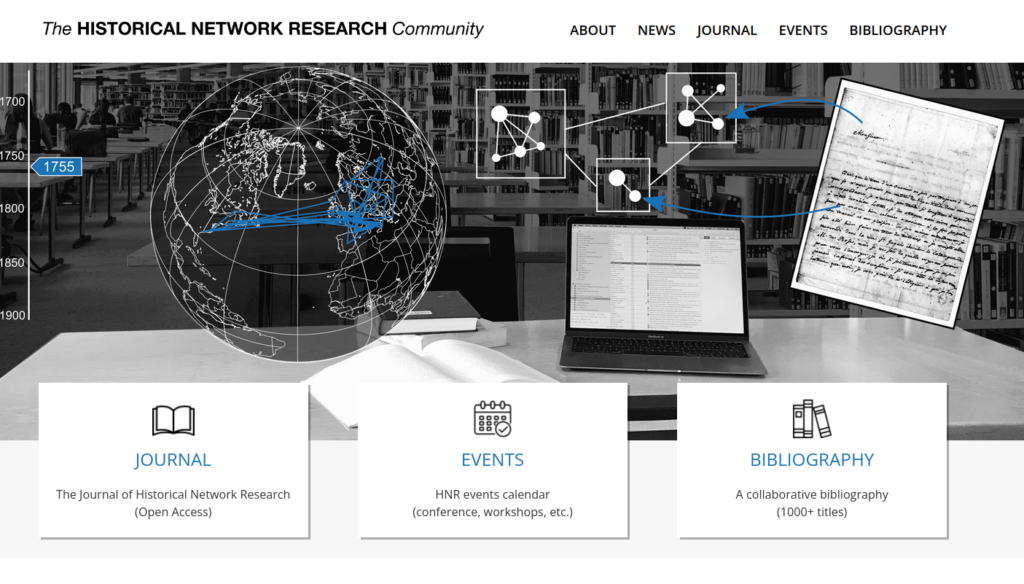
The Journal of Historical Network Research. I am one of the founding editors of JHNR. The journal publishes outstanding and original contributions which apply the theories and methodologies of social network analysis to historical research, helps advance the epistemological and theoretical understanding of social network analysis in the historical, social and political sciences, and promotes empirical research on historical social interactions. We seek to promote the interplay between different areas of historical research (in the broadest sense), social and political sciences, and different research traditions and disciplines, while strengthening the dialogue between network research and “traditional” historical research. The journal serves as a meeting place for the traditional hermeneutics of historical research and its concomitant emphasis on contextualisation and historical source criticism (as present in traditional academic historical journals) on the one hand, and the theory-heavy and/or sometimes overly technical discussion of methodological and technological issues (which predominates in publications focused on “pure” or sociological network research) on the other. All contents are made available free of charge to readers and authors following Open Access principles.
